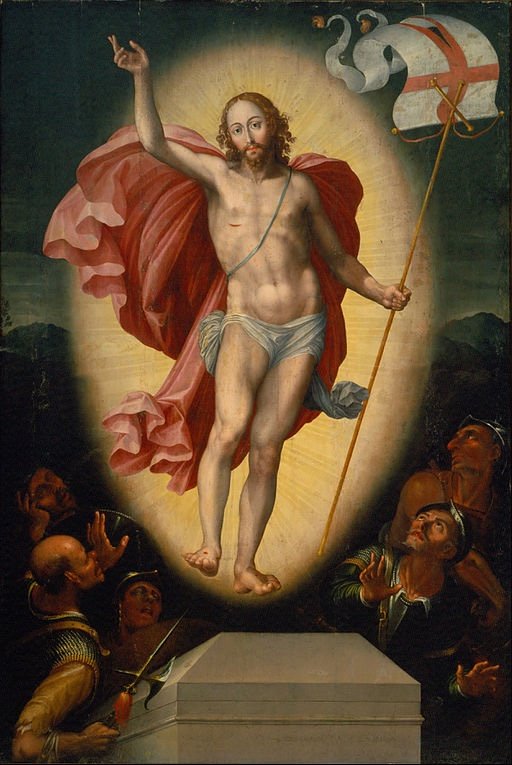HONOR THE SERVANT
WORSHIP THE KING
THE FIVE FIRST SATURDAYS IS A DEVOTION NEEDED NOW MORE THAN EVER! FIND OUT MORE HERE
THE SAINT MICHAEL PRAYER AND THE ROSARY
ARE ALSO POWERFUL PRAYERS TO HELP US THROUGH THESE VERY TURBULENT TIMES!
HIGHLY RECOMMENDED! DELIVERANCE PRAYERS,
A BOOK FROM SENSUS TRADITIONIS PRESS
(A GREAT PUBLISHER HELPING US FIGHT OUR MANY SPIRITUAL BATTLES NOWADAYS)!
CHECK OUT OUR PODCAST PAGE AND OUR YOUTUBE CHANNEL FOR INSPIRING CONTENT

In the book of Isaiah, the Song of the Suffering Servant (52:13-53:12) has a prominent place in Good Friday liturgies. The church has traditionally associated the focus of this prophetic message with our Lord Jesus Christ in his expiatory suffering for our sins in His Passion.
This prayer below might help put one in the proper frame of mind to honor Jesus’ extraordinary salvific sacrifice on the cross to redeem fallen humanity.
Dear Lord, in emulating the suffering servant of the scriptures in Your Passion you showed us the value of self sacrifice out of love for others in the most profound way imaginable. Help me to see how even the seemingly lowliest among us can be the highest in Your eyes, if we seek to glorify You in the sacrifices we make on behalf of others, out of love for You and our neighbors. In the grand scheme of things that is what truly matters, more than any earthly glory or fame attained without You.
These stirring passages that follow from the Song of the Suffering Servant give overall a sense of tragedy turned into triumph in the end. The Lord’s servant shall indeed prosper, and be exalted, as we read in Isaiah 52:13, but not until after first undergoing a severe trial.
As the Song of the Suffering Servant continues, the prophet Isaiah notes that “his appearance was so marred, beyond human semblance,”(Isaiah 52:14) And here’s what follows:
“He was despised and rejected by men; a man of sorrows,and acquainted with grief; Surely he has borne our griefs and carried our sorrows; yet we esteemed him stricken, struck down by God, and afflicted. But he was wounded for our transgressions, he was bruised for our iniquities; upon him was the chastisement that made us whole, and with his stripes we are healed. ….. He was oppressed, and he was afflicted, yet he opened not his mouth; like a lamb that is led to the slaughter …."
"By oppression and judgment he was taken away; and as for his generation, who considered that he was cut off out of the land of the living, stricken for the transgression of my people?.....although he had done no violence, and there was no deceit in his mouth. Yet it was the will of the LORD to bruise him; he has put him to grief; when he makes himself an offering for sin, he shall see his offspring, he shall prolong his days; the will of the LORD shall prosper in his hand;.... by his knowledge shall the righteous one, my servant, make many to be accounted righteous; and he shall bear their iniquities. Therefore I will divide him a portion with the great, and he shall divide the spoil with the strong; because he poured out his soul to death, and was numbered with the transgressors; yet he bore the sin of many, and made intercession for the transgressors." (Isaiah 53: 3-5, 7-12)
This setting is taken from the Ignatius Bible published by Ignatius Press. Regarding the line in 53:10, "Yet it was the will of the LORD to bruise him" we have another more familiar rendition from the New American Bible used at Mass of “He whom God was pleased to crush”, in this case, the servant, but by extention, also Jesus.
To the atheistic or otherwise unknowing ear that sounds harsh and indeed this particular suffering has been used as a battering ram against Christians and belief in God in any way shape or form. Perhaps you’ve heard it said “What kind of God would kill His own son, huh?”
Such an attitude might seem plausible on a purely secular basis. But with any kind of supernatural lens applied to it, such an argument falls flat on its face faster than those soldiers who came to arrest Jesus fell down at his preeminent presence, as his greatest trial lay straight ahead, right after his Agony in the Garden of Gethsemane (John 18:6).
We must remember that God was sacrificing not just his son, as Abraham was ready to sacrifice Issac as an offering to God before being stopped by an angel in Genesis (22:1-13) but rather, God was sacrificing His Very Self. That is to say that God the Father made what one could very well call the ultimate offering for sin in the person of His Son, who is also God (God from God, light from light, true God from True God as we say in the Nicene Creed at Mass).
When Jesus was being tortured and dying on a cross he made a God-sized sacrifice for humanity as a whole, for the expiation of sins and our salvation.
As the great theologian and Doctor of the Church St. Thomas Aquinas once wrote “The very death of Christ for us shows the love of God, for it was His son whom He gave to die that satisfaction might be made for us.” He continues quoting from St. John’s Gospel “God so loved the world, as to give His only begotten Son" (John 3:16).
As with Isaiah’s servant, Christ would atone for sins. In honoring our Lord as the suffering servant we also worship him consequently as the King of Kings. It is worth noting that St. Peter refers to the servant (in Acts 3:13) when he says that “The God of Abraham and of Isaac and of Jacob, the God of our fathers, glorified his servant Jesus.” This is taken from a stirring speech by St. Peter that converted many after our Lord’s resurrection and ascension into Heaven.
The Servant theme comes up again when the Apostle Philip is asked about a passage from this section of Isaiah by an Ethiopian eunuch and uses that question to proclaim the good news of Jesus before baptizing him (Acts 8: 27-38)
Isn’t it extraordinary indeed how God wishes to be so close to humanity, fallen and lost as we often have been, as to have inspired human beings, such as the prophet Isaiah, to write in such a manner that He would be obedient to the message He gave them?
It's as if the Word made flesh willed to make that word His bond! How many times nowadays, indeed throughout history have people given their word in what turned out to be broken promises, perjuries and various double dealings and double crossings that led to lawsuits, heartbreaks and even wars!
Like the Song of the Suffering Servant, Psalm 22 also comes up in Good Friday liturgies. While on the Cross Jesus uttered the famous psalmists’ cry “my God my God why have you forsaken me?”This has become what is known as part of the Seven Last Words (phrases actually) that Christ said while undergoing His crucifixion.
The psalmist laments in a strikingly prophetic manner as to what Jesus Himself experienced on the cross that “my strength is dried up like a potsherd, and my tongue cleaves to my jaws; you lay me in the dust of death. Yes, dogs are round about me; a company of evildoers encircle me; they have pierced my hands and feet— I can count all my bones— they stare and gloat over me; they divide my garments among them, and for my clothing they cast lots.” (Ps 22:15-18)
One might think this is a cry of despair. Far from it! It is actually a cry for God’s help to save the psalmist that he might be able to as he puts it “tell of your name to my brethren; in the midst of the congregation I will praise you" (Ps 22:22) and shortly afterwards we read:
“Those who seek him shall praise the LORD! May your hearts live for ever! All the ends of the earth shall remember and turn to the LORD; and all the families of the nations shall worship before him. For dominion belongs to the LORD, and he rules over the nations…..Posterity shall serve him; men shall tell of the Lord to the coming generation, and proclaim his deliverance to a people yet unborn" (Ps 22: 27-28, 30-31)
Clearly Psalm 22, like the Song of the Suffering Servant itself is a Good Friday turned into Easter Sunday. Jesus knew that His shameful ignominious crucifixion would actually glorify His Father, God in the power of its outcome.
When Jesus said “it is finished” and “Father, into your hands I commend my spirit” right before His death on the cross, I’d like to think as I do sometimes, when praying this part of the fifth Sorrowful mystery of the Rosary, the Crucifixion, its as if He were saying “Mission accomplished” (at least in terms of His Earthly ministry)!
St. Paul echoes this theme of triumph borne out of tragedy in this stirring memorable passage from His letter to the Philippians (Chapter 2:4-11). In urging his flock to emulate our Lord in His self giving Paul writes “Let each of you look not only to his own interests, but also to the interests of others. Have this mind among yourselves, which was in Christ Jesus, who, though he was in the form of God, did not count equality with God a thing to be grasped, but emptied Himself, taking the form of a servant.”
He continues that “being born in the likeness of men. And being found in human form he humbled himself and became obedient unto death, even death on a cross. Therefore God has highly exalted him and bestowed on him the name which is above every name, that at the name of Jesus every knee should bow, in heaven and on earth and under the earth, and every tongue confess that Jesus Christ is Lord, to the glory of God the Father”
In these times of apostasy and scandal, when the church’s Good Friday almost seems to be never ending, keep in mind that God always seeks to bring good out of evil, as we witness most starkly in our Lord’s Passion, Death, and Resurrection. Easter Sunday does follow in our liturgical calendar and it will in the life of the Church and the world as well.
Let that Easter Sunday promise find resonance in your heart and mind to do God’s will in prayer, penances, and in living the sacramental life as fully as possible, asking for His help, much as Jesus does in the beginning of Psalm 22, and with the faith our Lord had in emulating the Suffering Servant.
As we read in the footnotes found in the Ignatius Study Bible, “the New Testament reads the Fourth Servant Song as a messianic prophecy, following the lead of Jesus Himself, who declared that it must be fulfilled in Him. Jesus is thus proclaimed as the Lord’s exalted 'servant'."
In this supernaturally sublime case, as mentioned earlier, when we honor Jesus as the Suffering Servant, by offering our own troubles and sacrifices for our sins and those of others, for their and our salvation, we worship Him as the King of Kings as well!
God Bless,
Christopher Castagnoli
for www.ourcatholicprayers.com
FROM OUR BOOK AND GIFT STORE
OR CAFE PRESS STORE!
Return from Honor the Servant
to Prayer Blog Page














